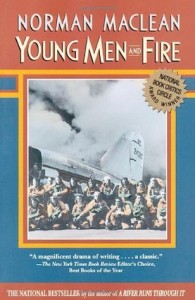 An unexpected side effect of world travel is a complete inability to read for about three weeks. It’s not that I’ve gone blind or can’t actually understand words (I read lots of words for work), but I haven’t been able to sink in and engage with them in any way that feels personally meaningful since I set my book down on the flight from Delhi to Frankfurt (just to get a little sleep) and failed to ever pick it up again. I think my brain has simply been too busy absorbing and processing the trip to do anything else. Still, reading is a major way that I interact with the world and I finally found myself desperate to read something, anything, that I could immerse my busy brain into. So when I found Young Men and Fire by Norman Maclean in a tiny used bookstore in Cannon Beach, OR, it was like finding fate.
An unexpected side effect of world travel is a complete inability to read for about three weeks. It’s not that I’ve gone blind or can’t actually understand words (I read lots of words for work), but I haven’t been able to sink in and engage with them in any way that feels personally meaningful since I set my book down on the flight from Delhi to Frankfurt (just to get a little sleep) and failed to ever pick it up again. I think my brain has simply been too busy absorbing and processing the trip to do anything else. Still, reading is a major way that I interact with the world and I finally found myself desperate to read something, anything, that I could immerse my busy brain into. So when I found Young Men and Fire by Norman Maclean in a tiny used bookstore in Cannon Beach, OR, it was like finding fate.Like many people, I read and loved A River Runs Through It, and I was hoping Maclean’s special blend of journalistic clarity and lyrical insight would fix my problem. And it did. This book opened up a floodgate of thoughts about the shape of narrative, what makes a voice, and how to achieve greatness in art. Come with me on the journey to Mann Gulch where so many smokejumpers died that day. There’s a lot we can learn from their tragedy, and only some of it is about forest fires.
Young Men and Fire
“A storyteller, unlike a historian, must follow compassion wherever it leads him. He must be able to accompany his characters, even into smoke and fire, and bear witness to what they thought and felt even when they themselves no longer know.” – Norman Maclean, Young Men and Fire
On an August day in 1949, fifteen smokejumpers landed in Mann Gulch northeast of Helena, Montana. Two hours later, only three of those men were still alive: foreman Wag Dodge (who survived thanks to a controversial “escape fire” he set), Walter Rumsey, and Robert Sallee. The tragedy was so great and so unusual that it became a part of smokejumping legend. It also tugged at Norman Maclean’s mind from the time he visited to the fire to the end of his life.
The Cartography of a Story
“This is a story in which cartography and plot are much the same thing” – Norman Maclean, Young Men and Fire

The story (and Maclean’s writing of it) so pulled at me that it not only reignited my love for reading, it also pulled me to sit down and draw what was happening in the narrative because there is mastery in his construction.
Every story has a heart, but we writers often either don’t know where the heart is or we want to go straight for it. If Maclean had written a linear narrative that started with the question of whether Dodge’s escape fire was responsible for the deaths of his men, not only would it be a very different book (much more report-like), it would also appeal only to an audience who already understood all of the components.
“For a long time, our story becomes the story of trying to find it” – Norman Maclean, Young Men and Fire
Instead, Maclean approaches that central question from all of the angles a layperson needs to understand in order to comprehend that the question of Dodge’s culpability is not the only question at all. He lays out the background of the smokejumping program and introduces us to the men who were there that day and how their individual personalities might hint at the reasons behind the outcome. He gives us enough information about the geology to understand that the men were trapped in a gulch with a 76 degree slope. He explains the science of fire and what turns a forest fire into a 2,000 degree blowup racing up a slope.
“In this story of the outside world and the inside world with a fire between, the outside world of little screwups recedes now for a few hours to be taken over by the inside world of blowups” – Norman Maclean, Young Men and Fire
Between these elements, Maclean gets far enough into the story to whet our appetites but not to satiate them—at least not yet. After all the straightforward evidence about the conditions and leadup are on the page, Maclean doubles back and explores how the winds racing up canyon could have shaped and directed the fire which changes our understanding of the events. And just when you think you have it all down, Maclean attacks that narrative from one more completely different and unexpected direction—memory—he questions all the accounts he’s already laid out.
Narrative Tension
“[A] forest fire is not all a big roar behind you getting closer—a dangerous part of it is very sneaky and may actually have sneaked out ahead of you or is trying to and doesn’t roar until it is about to close in on you.” – Norman Maclean, Young Men and Fire
The result of Maclean’s structure is an incredible amount of tension and richness in the narrative. Some of it is the really hot center of the tragedy and some of it is the sneaky smoldering of a log before it ignites. But not only do we have enough information to immerse ourselves in the story, we have enough to become embroiled in some of the lasting debates about exactly where Rumsey and Sallee escaped and whether Dodge’s fire, though meant to save his men, actually caused their deaths.
The other thing about narrative tension is that it can lead us writers to rush what we’re doing. Here Maclean shows us the rewards of patience in the process of writing. As he was researching the book, he was constantly delayed because of the remote location of the site and because it’s only reasonably accessible in the summers. At one point he writes, “So it had taken us three years to locate two places on the ground.” Maclean was not a young man when he wrote this book, in fact he died while writing it, although it’s so beautifully done you’d never know it. But this book made me realize that allowing the story to emerge in its own time and in its own way is worth every second and every decade.
Stalling Time
“[T]here is no story, certainly no ending to a story, that can be found by communicating with the living who loved the young who are dead, at least none that I am qualified to pursue. A story at a minimum requires movement, and with those who loved those who died, nothing has moved.” – Norman Maclean, Young Men and Fire
In the end, this book is the story of a terrible tragedy. It might be the story of whether Dodge is culpable, or it might be the story of something inescapable. One of the things we’re trained to do as writers is to deeply inhabit a tense moment by stalling time with added detail and short side narratives. It’s a way to pull a reader in and to give them the satisfaction of more levels of information while they’re captives of their own interest in the story.
On Veteran’s Day this year, Steve Inskeep shared an interview with the parents of a Marine about what it felt like to be notified of his death. Inskeep remarks that the father seems unable to actually get down the stairs as he keeps taking the story back into Nathan McHone’s childhood and young life.
Writers will recognize this as the stretching of time and use of the reader’s enthrallment in the tension of that moment to pull them deeper into the story that I just described. The father in this recording is both storyteller and story audience as he reminisces about his son. It’s a poignant moment listening to him resist the notification of death as he inhabits the moments his son was still alive. Equally poignant is the sound of the mother’s voice as she rushes him to the part of the story where they open the door and receive the notification.
As a writer, this recording is instructive. Because of course the McHone’s are still stuck inside the recent story of the loss of their son. But when Maclean runs into this when interviewing the parents of one of the Mann Gulch victims, he finds that the father cannot get beyond the story of the loss. He cannot move the story forward. And Maclean could have gone deeper into that story then, but he would have become mired in it. This was an excellent reminder for me that although there are many moments that call (and likely deserve) to be stretched and explored, my job as a writer is to ruthlessly follow the movement of the larger narrative.
The Beauty of Clean Prose and Finding Your Voice
“In retrospect I think the experience of listening to me recite the Westminster Catechism influenced [my father’s] own literary style, and perhaps even mine in later times.” – Norman Maclean, Young Men and Fire
As I wrote earlier, Maclean’s prose is what brought me to this book. Though I’ve a tortured relationship with Hemingway, there is something about a journalist who can incorporate lyricism that leads to some of my favorite writing. You can see some of Maclean’s religious upbringing peeking through the language and preoccupations of the following gorgeous sentence:
“So this story is a test of its own belief—that in this cockeyed world there are shapes and designs, if only we have some curiosity, training, and compassion and take care not to lie or be sentimental.” – Norman Maclean, Young Men and Fire
This book, and a very important conversation I had with a very good friend this week, haven had me thinking about voice all week. I’m only starting to realize that it’s the tiny “imperfections” in our voices that make them so beautiful. Maclean was a moral man who was not afraid to wax metaphoric about the woods or fire. I’m sure a newspaper editor would have edited much of that out, but it’s also what makes his voice. I’ve incorporated syntax from every language I’ve learned and use that to slow down and speed up my sentences (often without realizing it). And those languages have also taught me to look at the roots of words and sometimes use the one that’s just off from expected.
My point here is that as a writer, I hope you will pay close attention to the voices of other writers, and then come back and learn to appreciate what makes yours uniquely beautiful.
Writing into the Heat
Maclean was haunted by this story because of his history of working on a fireline and later of seeing up close some of the terrible aftermath of the Mann Gulch fire.
For me this book is also personal. My dad flew smokejumpers out of Missoula and then became a forest economist—a profession with an equally important, if less dangerous, relationship with forest fires. The other woodsman in my life, my brother, taught me what a scree slope is and obliges me with lectures on geology whenever I ask. As I was reading this book, I felt like I was coming closer not only to understanding what happened that terrible day and to the components of amazing writing. I also felt closer to my dad and brother. When you write into a story that you feel deeply, that is when you have the power touch someone else deeply.
“Our story about the Mann Gulch fire obviously makes it hard on itself by trying to find its true ending.” – Norman Maclean, Young Men and Fire
At the end of this book, Maclean does finally offer an opinion on whether Dodge’s fire killed his men. But only then did I realize how little that one tiny fact mattered. The real story of Young Men and Fire can only be understood as bigger than any of the facts. Bigger, even, than all of us put together.
If you want to closely study Norman Maclean’s storytelling or even just learn more about the Mann Gulch fire, pick up a copy of Young Men and Fire from Bookshop.org. Your purchase keeps indie booksellers in business and I receive a commission.
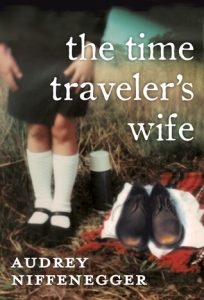 I finally picked up The Time Traveler’s Wife by Audrey Niffenegger as a throwaway book for my trip to India. I’d heard so much about the book and the movie, but I just didn’t think it would be my thing. But reading this book in India had a lot more meaning for me than reading it at any other time would have.
I finally picked up The Time Traveler’s Wife by Audrey Niffenegger as a throwaway book for my trip to India. I’d heard so much about the book and the movie, but I just didn’t think it would be my thing. But reading this book in India had a lot more meaning for me than reading it at any other time would have.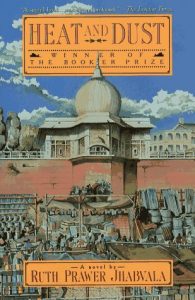 One of the things I was most afraid of in coming to India was replicating the colonial experience. This frightened me because I despise the exploitation of other peoples and cultures and I thought with my oh-so-white skin and complete lack of skill with local languages and norms that I could not avoid being seen as one of those colonizers who expects to be treated as more and better. It also frightened me because I thought I might grow to like it.
One of the things I was most afraid of in coming to India was replicating the colonial experience. This frightened me because I despise the exploitation of other peoples and cultures and I thought with my oh-so-white skin and complete lack of skill with local languages and norms that I could not avoid being seen as one of those colonizers who expects to be treated as more and better. It also frightened me because I thought I might grow to like it.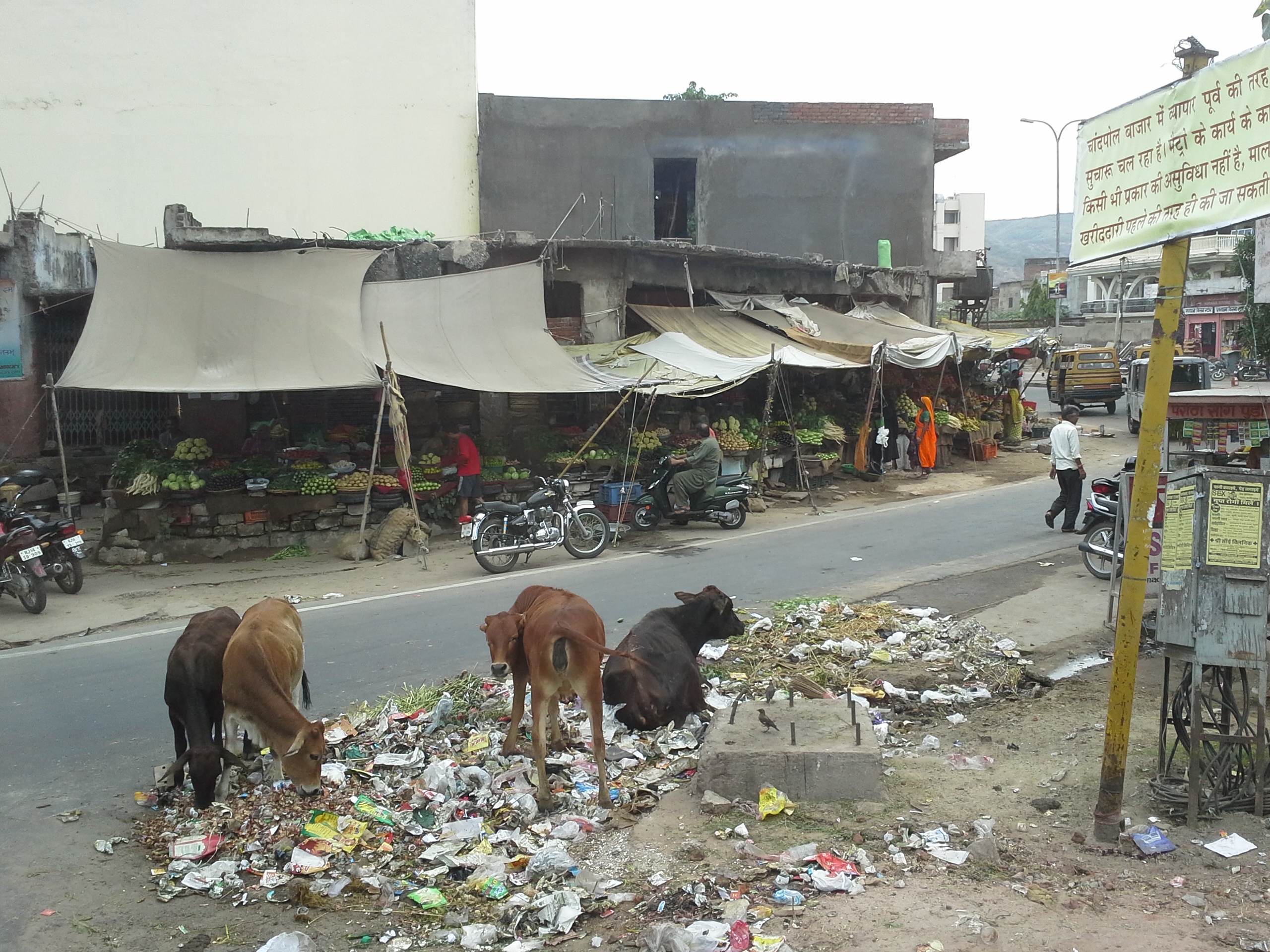
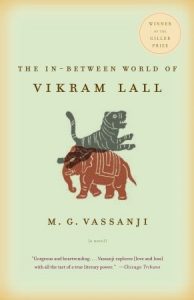 How many book reviews can I write about diaspora? Maybe a lot because the feeling of not knowing where or what home is is something I struggle with. So when I picked up The In-Between World of Vikram Lall by MG Vassanji as part of the great India book grab, thinking that because the author’s name sounded Indian, it must be about India, I was making an assumption that shows how much I want life to fit into identifiable little boxes. Instead, I found a story much more similar to my own life, a story of a man living away from his ancestral home and trying to figure out who that makes him.
How many book reviews can I write about diaspora? Maybe a lot because the feeling of not knowing where or what home is is something I struggle with. So when I picked up The In-Between World of Vikram Lall by MG Vassanji as part of the great India book grab, thinking that because the author’s name sounded Indian, it must be about India, I was making an assumption that shows how much I want life to fit into identifiable little boxes. Instead, I found a story much more similar to my own life, a story of a man living away from his ancestral home and trying to figure out who that makes him.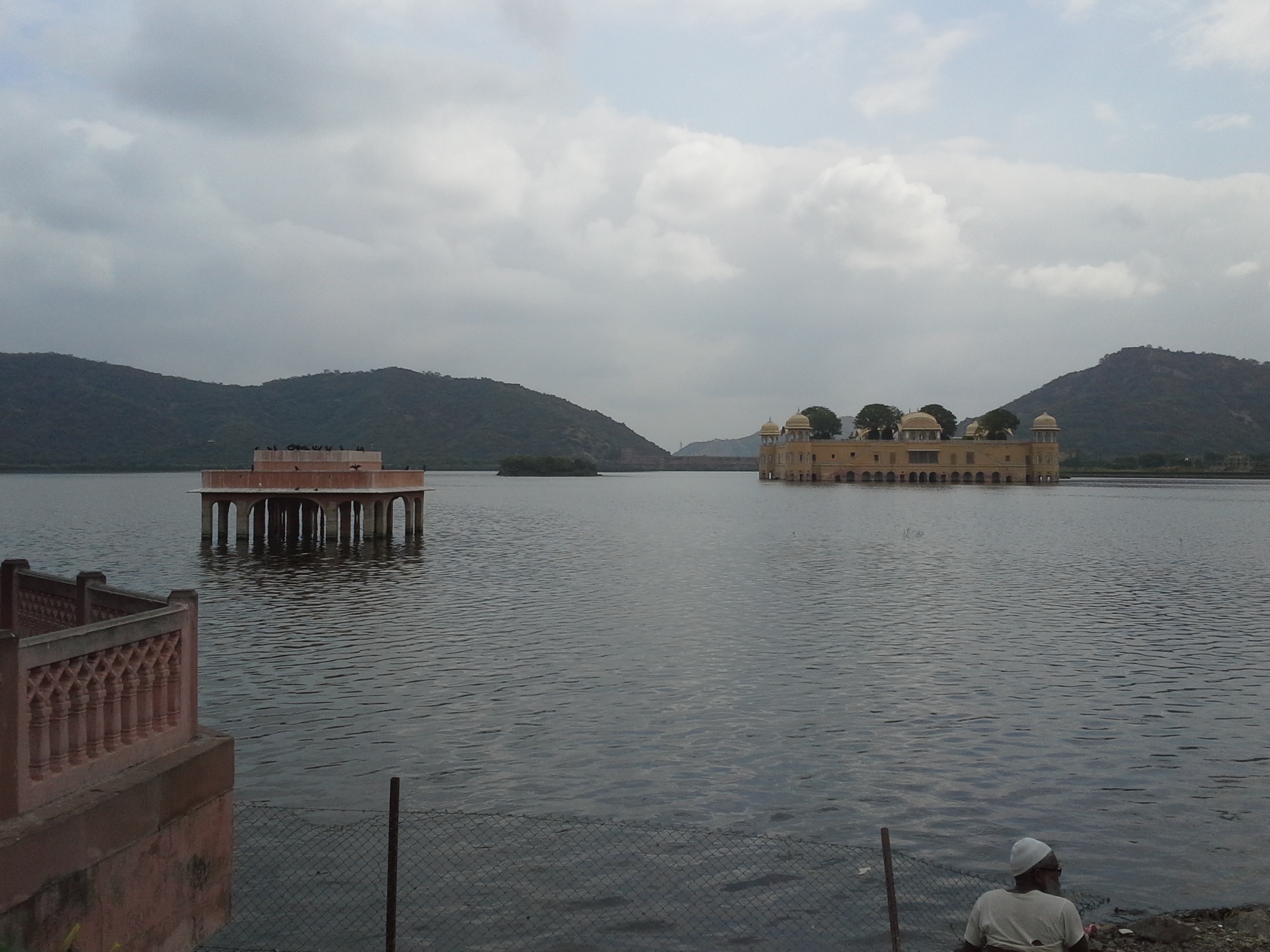
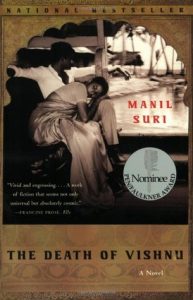 As preparation for this trip to India that I’m on, I gathered as much Indian literature around me as I thought I might be able to carry. I planned to read the books along the journey and then to leave them or share them with other travelers on the way. But one book, The Death of Vishnu called me to read it before I even left for the US and I’m so glad I did.
As preparation for this trip to India that I’m on, I gathered as much Indian literature around me as I thought I might be able to carry. I planned to read the books along the journey and then to leave them or share them with other travelers on the way. But one book, The Death of Vishnu called me to read it before I even left for the US and I’m so glad I did.